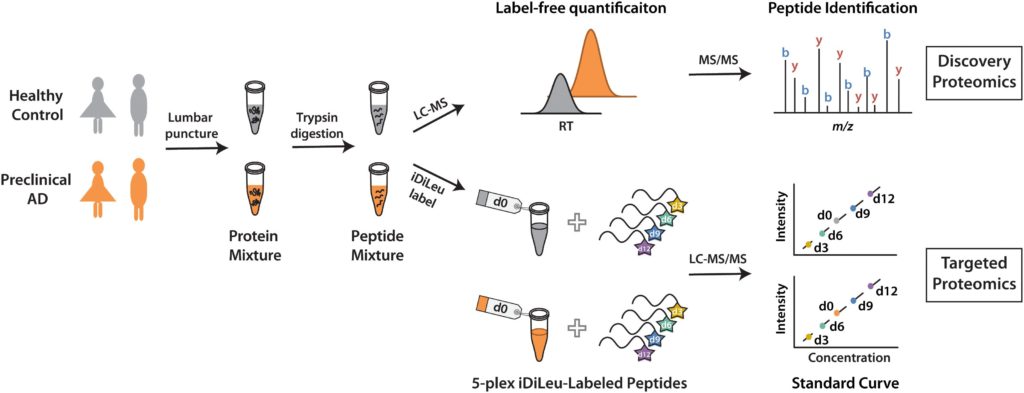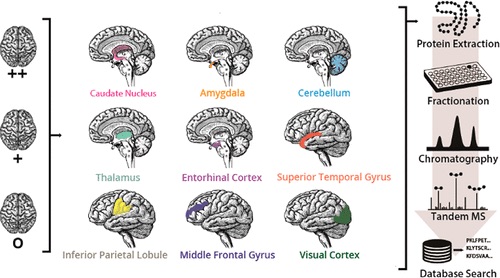Identification of Alzheimer’s Biomarkers for Early Diagnosis and Treatment
Alzheimer’s disease begins with a long, hard-to-discern and symptom-free phase which may be a key opportunity for early diagnosis and therapeutic intervention. Zhong et al (2019) defined reliable and valid biomarkers that could identify the disease during this period, as published in a recent article in Frontiers in Molecular Neuroscience.
Alzhiemer’s disease is a progressive neurodegenerative disease which is characterized by the progressive buildup of senile plaques, neurofibrillary tangles, and loss of synapses and neurons in the brain. Behaviorally, this is presented as a progressive degeneration of overall function, such as difficulty with memory, mood instability and loss of motor function. Currently, there is no cure.
Using discover proteomics analysis of cerebrospinal fluid (CSF), Zhong et al found that in both healthy controls and in preclinical Alzheimer’s Disease patients, 732 proteins in women and 704 men proteins in men had more than one unique peptide. Then, Zhong et al found that 79 (women) and 98 (men) proteins were significantly altered in preclinical alzheimer’s patients who have already demonstrated some symptoms of mild cognitive impairment or dementia.
Using N,N-dimethyl leucine (iDiLeu) tags, researchers verified the Alzheimer’s disease biomarkers called neurosecretory protein VGF and apolipoprotein E. Then, researchers used a four-point internal calibration curve to determine the “absolute amount” of target analytes in cerebrospinal fluid through a single liquid chromatography-mass spectrometry run.


